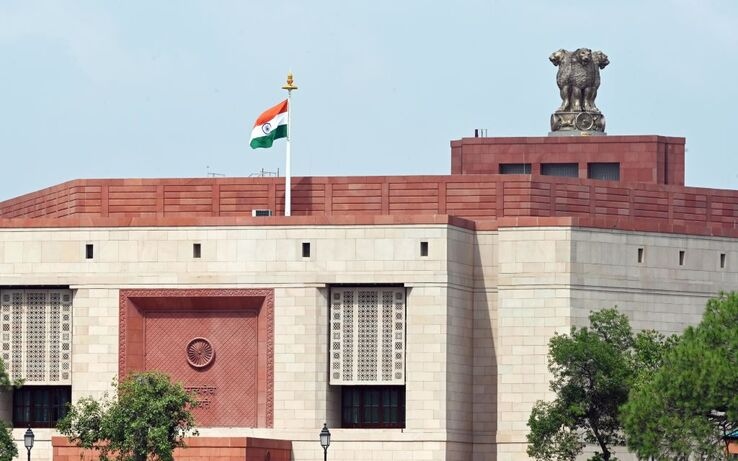The Lok Sabha, on Tuesday, conducted voting on the introduction of two bills to amend the constitution and permit simultaneous federal and state polls. This is part of the ruling BJP party’s ‘One Nation, one Election’ concept.
What is ‘One Nation, one Election’?
In simple words, it means that all Indians will cast their votes in Lok Sabha and assembly elections in the same year or at the same time. Central and state representatives will be picked by simultaneous voting at the state and national levels.
In 2024, seven states voted in the same year during the Lok Sabha election. Andhra Pradesh, Arunachal Pradesh, Sikkim, and Odisha voted alongside the April-June Lok Sabha elections. The other three states, namely Maharashtra, Haryana, and Jammu and Kashmir, voted in October-November of the same year.
Other states follow a five-year cycle, which does not sync with each other.
The introduction of ‘One Nation, One Election’ will require an amendment to the Constitution, particularly Article 83, which defines the term of the parliament, Article 85 discussing the dissolution of Lok Sabha by the President, Article 172 stating the duration of the state legislature and Article 174 that discusses the dissolution of the state legislature. The inclusion of Article 356, imposition of President’s rule, will also need amendment. All these amendments will be rectified by the governments of all states and union territories as well. After that this amendment can be brought into action.
The Two Opposite Ends
Some believe that one nation one election will save a lot of cost spent on setting up election campaigns. It will be easier for voters too.
However many legal experts warn that such amendments can be charged for violating India’s federal structure. The federal structure followed by India gives powers to Central and state governments proportionately.
Because of this difference in opinion, the bill could not be passed successfully on Tuesday. Out of 461 votes by the parliamentarians, a 2/3 majority ( ie 307 votes) are required. However, the government could only secure 269 votes, failing to pass the bill further.
Congress MP Shashi Tharoor pointed out the apparent gap in numbers and told reporters, “Undoubtedly, the government has a larger number on its side… but to pass it (the bill) you need a 2/3 majority that they very clearly don’t have.”
A Joint Parliamentary Committee
After the voting process, a Joint Parliamentary Committee or JPC received the bill for wider consultation. The composition of this joint committee consists of Rajya Sabha MPs picked up by speaker Om Birla, within 48 hours.
Each political party presiding inside the parliament has been asked to propose members for the joint committee. It is obvious that the ruling Bharatiya Janata Party will have the majority of members in the committee and will also occupy the chair.
But the proportion of other parties in the committee is yet to be announced. Normally a maximum of 31 MPs are part of a joint Parliamentary committee, out of which 21 can be expected to be from Lok Sabha.
Once the committee is established, it is expected to submit a report within 90 days.


